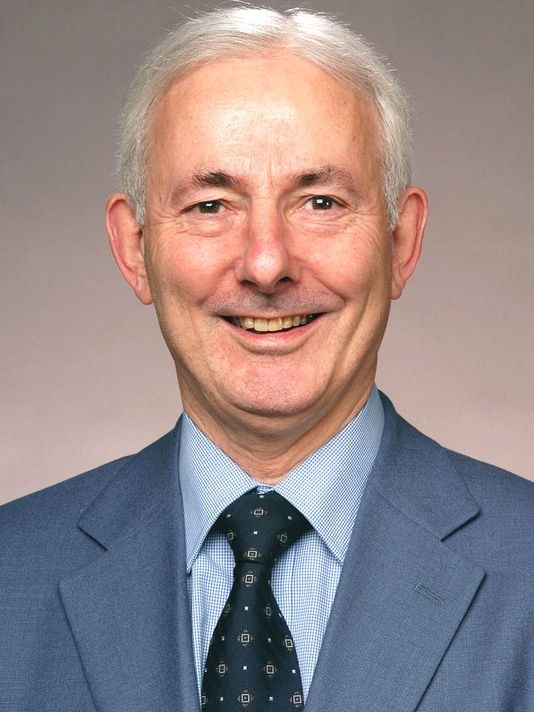Commentary by Christopher Squier for the Iowa City Press-Citizen

Dr. Christopher Squier
In 2014, major airline crashes killed more than 760 people and, understandably, raised concerns over safety issues and the risks of flying. Less understandably, tobacco use prematurely killed 480,000 people in the U.S. and about 5 million people worldwide but engendered little debate. People hear these figures, shrug and turn away — tobacco death fatigue?
But what makes these figures so appalling is that these deaths are preventable and, even worse, rational attempts to reduce them are vigorously opposed by the industry that causes them. In no other area of public health are initiatives intended to reduce and eliminate risk actively opposed by a well-funded, international business. The Feb. 3 WorldCanvass program, “Tobacco, Pot and the Public Interest,” will explore why a product that, when used as intended, inevitably damages or kills its user continues to be available. We also will consider the paradox that another product, marijuana (cannabis), which appears to have some medicinal benefits, remains illegal in most jurisdictions. Attempts to alter its status are often vigorously opposed, yet it has been claimed to be the most-used illicit drug in the world.
Tobacco and marijuana have been cultivated for human consumption for millennia. A “Columbian exchange” brought tobacco from Central America to Europe in the 15th century and marijuana to South America from Spain in the 16th century. Since that time, both substances have become inextricably woven into the culture of the U.S. and have been valued for their psychoactive properties. Concerns over the addictive and neurological effects of marijuana led to its restriction and banning in the U.S. at the beginning of the 20th century.
The invention of a commercial cigarette-making machine at the end of the 19th century led to the growth of a large and prosperous industry which, for more than 75 years, denied any adverse health effects from tobacco use. Following the publication of the Surgeon General’s Report in 1964, which convincingly linked smoking to lung cancer, there was federal legislation to require warning labels on cigarette packs, restrict television and radio advertising, and increase tobacco taxes. Subsequent actions by states (but not the federal government) including the introduction of smoke-free laws, significantly reduced smoking rates in the U.S.
Faced with declining numbers of customers in this and a number of Western countries, the tobacco industry turned its attention to seeking new smokers in the developing world and the newly independent states of the former Soviet Union. The World Health Organization, in an attempt to address the global pandemic of tobacco-related disease, established the Tobacco Framework Convention in 2005, which proposed specific steps for governments to address tobacco use. The convention has been ratified by 179 countries; the U.S. is a signatory but has not ratified the convention.
Success in reducing tobacco consumption in many countries has led to discussion of whether there is an “end game” for tobacco. However, as the U.S. found out in the last century, banning an addictive substance can lead to more problems than it solves and a number of ingenious approaches have been proposed in countries such as New Zealand, Australia and Singapore. Most of these involve restricting access to tobacco while increasing its cost.
While attempts continue to eliminate tobacco use, there have been significant moves in the U.S. to increase access to marijuana. “Medical marijuana,” usually extracted cannabinoids such as tetra-hydrocannabinol, has been claimed to benefit individuals suffering from epilepsy, dementia, schizophrenia and HIV/AIDS. This has led to legislation in a number of states to legalize or decriminalize the use of marijuana. However, there is still considerable conflict between those advocating recreational use, those supporting medicinal use and those opposing any use of marijuana.
I invite you to attend the discussion program WorldCanvass at 5 p.m. Feb. 3 at FilmScene, 118 E. College St., when experts from many fields will discuss the conflicts that arise between the public good, personal liberty and freedom of speech in addressing the availability and use of tobacco and marijuana.
Dr. Christopher Squier is director of the Oral Sciences Training Program at the University of Iowa College of Dentistry.
If you go
•What: WorldCanvass program, “Tobacco, Pot and the Public Interest.”
•When: 5 p.m. Feb. 3.
•Where: FilmScene, 118 E. College St. in Iowa City.
•More information: http://international.uiowa.edu/connect/programs/worldcanvass.